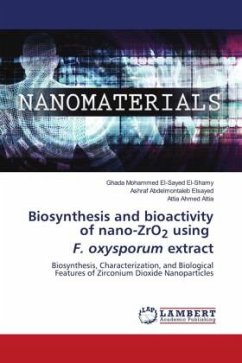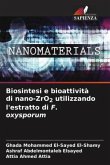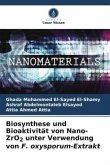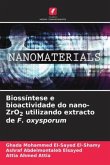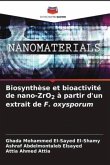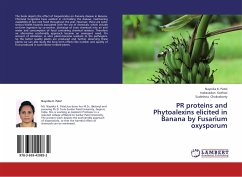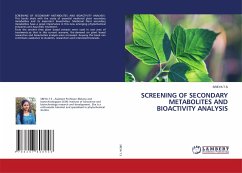The current book describes the biosynthesis of ZrO2-NPs using F. oxysporum extract and characterization of their formation employing UV-vis spectroscopy, Energy Dispersive Analysis of X-ray (EDX), Fourier-transform infrared spectroscopy (FT-IR), Transmission Electron Microscopy (TEM), Selected Area Diffraction Pattern, and Scanning Electron Microscopy (SEM). The cytotoxic assessment revealed moderate cytotoxic activities against HePG-2, MCF-7, PC3, HeP2, and HeLa tumor, and normal WI-38 cell lines. The antimicrobial activity observed against Gram-positive and Gram-negative bacterial species specified that ZrO2-NPs demonstrated impending inhibitory action against Gram-negative bacterial species. Also, polyacrylamide gel electrophoresis was applied for the analysis of proteins that participated in the biosynthesis of ZrO2-NPs.The anionic detergent is responsible for destroying the native protein chains into the polypeptide units and entirely swamps the unique charge of the proteinsalong with adapting to the overall negative charge of all analyzed protein molecules. Therefore, ZrO2-NPs could be recommended for relevant biomedical applications after further in vivo studies.
Bitte wählen Sie Ihr Anliegen aus.
Rechnungen
Retourenschein anfordern
Bestellstatus
Storno

